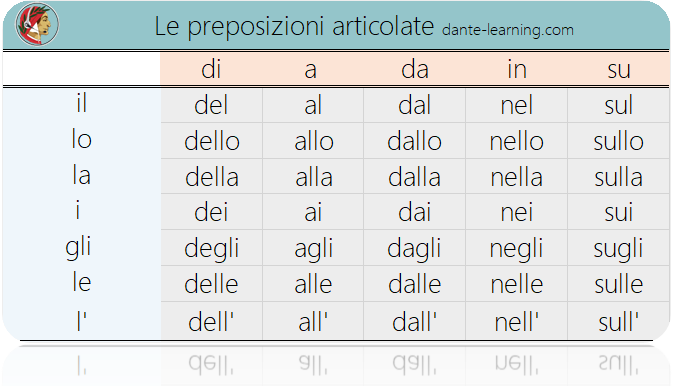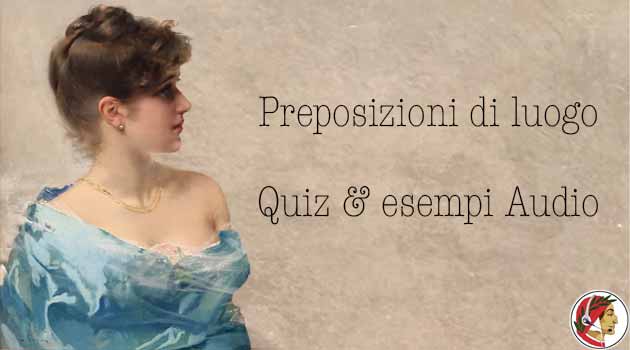Subordinating conjunctions, congiunzioni subordinative. Examples with audio
We already talked about the congiunzioni coordinative in a previous post.
Just to recap in simple terms, the congiunzioni coordinative connect sentences or elements of a sentence that have the same importance.
- Devo fare la spesa e cucinare.
In this example, the conjunction “e” (and) puts on the same level the verbs fare (la spesa) and cucinare. We could also use it with two nouns, adjectives, adverbs or two whole sentences.
Today, we are changing topic and describe in detail the Italian congiunzioni subordinative.
See the examples:
- Non mangio perché non ho fame.
- Non mangio se non ho fame.
- Non mangio quando non ho fame.
The subordinating conjunctions are crucial for understanding the logical connection between the two clauses: because, if or when I am not hungry, I do not eat. In the three examples, (io) non mangio is the main clause, it is the centre of the sentence; (…) non ho fame is a subordinate clause because it exists only for describing the main clause.
The congiunzioni can be simple (e, o, ma etc…), compound (perché /per+che/, sebbene /se+bene/ etc…), or a set of words working as conjunctions (dal momento che, per il fatto di, ect,).
Some of the examples you will see below, are common in the spoken language, others are more common in written Italian. We can sort out the differences during our Skype classes.
We can safely divide the subordinating conjunctions according to their different function. Note that many congiunzioni require the use of the congiuntivo.
All the examples are in Italian. Please make an effort and try to understand.
If you are a Skype student and have questions, with them down for our lessons. If you are a free member, please ask in the comments. Siete pronti?
The congiunzioni subordinative can be…
Causali, indicate a cause, a reason.
- Non sono andato in ufficio perché ho la febbre.
- Siccome ti sei comportato male, questa settimana non userai la Play Station.
- Non comprerete una macchina nuova visto che quella vecchia funziona ancora.
- Dal momento che non mi hai aiutato, io non aiuterò te.
- Non ho comprato la carne dato che sono vegetariano.
- Luisa è stata bocciata all’esame per il fatto che ha copiato.
Finali, indicate an objective.
- Giorgio lavora giorno e notte affinché sua figlia possa studiare.
- Abbiamo fatto una riunione perché tutti riescano a capire.
- Ho comprato due biglietti per il concerto in modo che possiamo andare insieme.
Concessive, (despite…).
- Mio padre vuole regalarmi un orologio benché sappia che non mi piace.
- Voglio andare in Giappone sebbene il viaggio sia molto lungo.
- Non riesco a imparare il russo per quanto mi impegni.
- Andremo in vacanza in montagna malgrado ci sia poca neve.
- Vado sempre al lavoro a piedi nonostante faccia molto freddo.
- Domattina mi sveglierò presto anche se non voglio.
Limitative, introduce a limitation, an obstacle, an exception.
- Amo fare sport, fuorché giocare a calcio.
- Farei di tutto per diventare ricco, tranne rubare.
- Non andrò al supermercato salvo che mia madre me lo chieda.
- Mi piacerebbe vedere un film a meno che tu non preferisca il teatro.
- Devi pulire la tua stanza, senza che io te le dica
- Non riuscirò mai a chiedergli scusa, per quanta volontà ci metta.
Interrogative indirette, asking questions without “?”
- Dimmi se hai bisogno di aiuto.
- Vogliamo sapere come ti guadagni da vivere.
- Ti chiedo quando mi restituirai il prestito.
- A volte mi chiedo perché sono così ingenuo.
- Vorrei sapere quanto tempo ci vuole per arrivare a Napoli.
Temporali, introduce “when”.
- Quando ho incontrato Luigi, aveva i capelli lunghi.
- Fammi sapere come (= appena) arrivi all’aeroporto.
- Mi hai chiamato al telefono appena sono uscito dalla doccia.
- Ti pagherò dopo che avrai finito il lavoro.
- Prima che sia troppo tardi, devi cambiare idea.
- Non mi disturbare mentre studio.
- Finché vivi in questa casa, farai quello che ti dico io.
- Puoi scrivermi ogni volta che vuoi.
Consecutive, introduce a consequence.
- Ero così stanco che mi sono addormentato immediatamente.
- Ti vuole così tanto bene che farebbe qualsiasi cosa per te.
- Faceva caldo a tal punto che una donna è svenuta-
- Ama talmente sua moglie che le regala dei fiori ogni giorno.
Comparative, introduce a comparison.
- Amo cucinare piu che mangiare.
Modali, tell us “how” things happen.
- Gridava come se fosse impazzito.
Condizionali, introduce a condition.
- Ti dirò tutto se mi prometti di non raccontarlo.
- Prenoterò quella stanza purché abbia la vasca da bagno.
- Qualora abbiate bisogno di una mano, fatemi sapere.
- Potrai guardare la televisione a condizione che mangi tutti i broccoli.
- Ti venderò la mia macchina a patto che tu la paghi subito.
Grazie mille. Alla prossima.
Italian painting of today: Aleardo Terzi, Donna elegante con il cane (prima metà ‘900)













